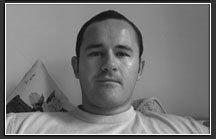GT:Africa .:. Pre-Ghana
 4th Stop
4th Stop
Planned Attendance: August 23rd - September 5th, 2007
Ah, Ghana - land I long for. I've wanted to visit Ghana for over a decade due to their vibrant love of soccer and the astonishing landscapes I've seen in magazines.
Present-day Ghana has been inhabited since at least 4,000 B.C., but little information remains about these early societies - more is known about the kingdoms of the 13th century. Influenced by the Sahelian trading empires to the North including the empire of Ghana (again, not the country), a powerful kingdom known as the Ashanti came to inhabit central and southern Ghana. Fueled by gold, trading networks flourished and the Ashanti expanded further into the South where they encountered and often found conflict with the Fanti, Ga and Ewe people of the coast. Here, they also encountered Portuguese traders interested less in gold than in the human commodity.
Initially lured by gold and ivory, the Portuguese took advantage of the building of plantations in the Americas during the 16th century by refocusing their economic efforts on the slave trade. Their successes lured the Dutch, British and Danes to join in and the slave trade exploded with the Ghanian coast being the site for a number of forts and strongholds of various European powers. The native kingdoms also grew rich as they were an essential link in the chain - capturing and delivering members of rival tribes to deliver to the Europeans.
By the time slavery was outlawed in the 19th century, it was the British who held the best hand and gained the dominant position on the coast. The Ashanti attempted continued expansion into the lands of the Ga, Ewe and Fanti who sought protection from the British. A number of wars between the Ashanti and British saw the sacking of Kumasi, the Ashanti capital, in 1874 and the occupation of the city in 1894 after the Ashanti continued the fight. The British established a protectorate over Ashantiland in 1901 and exiled their leader to the Seychelles (well off the East coast of Africa, South of India).
Under British rule, cocoa became the backbone of the economy and in the 1920s, the Gold Coast (as Ghana was known back then) became the world's top producer. By WWI, cocoa, gold and timber had made the Gold Coast the most prosperous colony in Africa. By independence (March 6th, 1957), Ghana was flying high with the best schools and civil service in Africa. Imprisioned by the British in 1951, the first President of the Gold Coast was Kwame Nkrumah who, when released in 1957 to lead the country, immediately changed the country's name to that of the mighty empire of centuries past - Ghana.
Nkrumah's time in power is marred by overly-ambitious schemes, reckless spending and unbridled corruption. While on a trip to Hanoi in 1966, the army staged a coup and ousted him. He died in exile six years later in Guinea. In 1972, after the army and a civilian government failed, another coup was headed by a Colonel Acheampong. Under his leadership, everything got worse including massive devaluation of the cedi and food shortages and he was ousted by the coup of 1979 which saw a 32-year old, half Scottish air force flight lieutenant rise to power. Jerry Rawlings quickly became adored by the people - he had Acheampong executed and after the civilian government he allowed to take over failed, he took power again in 1982 and stayed for two decades.
Since 1992, Ghana has had its ups and downs. It has seen one of its citizens, Kofi Annan, head the U.N., it has faired decently in international footy and it has seen some improvement in world opinion. It has also seen lack of improvement in social services, rising inflation and increasing corruption. The party in power's slogan is "So Far So Good". I am very much looking forward to experiencing Ghana first hand and will let you know what I find.
The Stats:
Land Area: 239,460 sq km (bit smaller than Colorado)
Average Temp: 22 / 27 (Low/High, Accra in August)
Average Humidity: 97 / 77 (am/pm, Accra in August)
Precipitation: 15mm (Accra in August)
Population: 22,931,299 (July 2007, est.)
Infant Mortality: 53.56 deaths per 1,000 live births
Life Expectancy: 59.12 years
Fertility Rate: 3.89 children born per woman
Literacy: 57.9% overall, 66.4% / 49.8% (Male/Female, 2000)
HIV/AIDS Prevalence: 3.1% (350,000 living with, 2003)
Infectious Diseases: Hep A, typhoid, malaria, yellow fever, meningococcal meningitis
Major Religion(s): Christian - 68.8%, Muslim - 15.9%
Official Language(s): English
GDP per capita: $2.700 (2006, est.)
Occupation Distribution: 60% Agriculture, 15% Industry, 25% Services (1999, est.)
Unemployment: 20%
Pop. below poverty line: 31.4% (1992, est.)
Sources: Lonely Planet West Africa, CIA World Factbook, Wikipedia


No comments:
Post a Comment